Is water leaking into your basement after heavy rain? If so, your search for answers is over. In this article, you will learn why water is leaking into your basement, how to seal any leaks, and finally, how to prevent water leakage.
Why Is Water Leaking Into My Basement After Heavy Rain?
If you notice water is leaking into your basement after heavy rain, you might have a basement drainage issue. If you don’t have a proper drainage system in place, water can build up in the soil outside your basement walls and cause heaps of problems. Some of those include:
Hydrostatic pressure – If the soil around your basement starts to absorb excessive amounts of water, its volume can increase. This increase in volume will exert pressure against your basement walls, causing them to bow, lean, or sheer. If your walls start to move inward, cracks can begin to form, which can then allow water to leak inside your basement. Homes built in areas with high water tables are most susceptible to hydrostatic pressure.
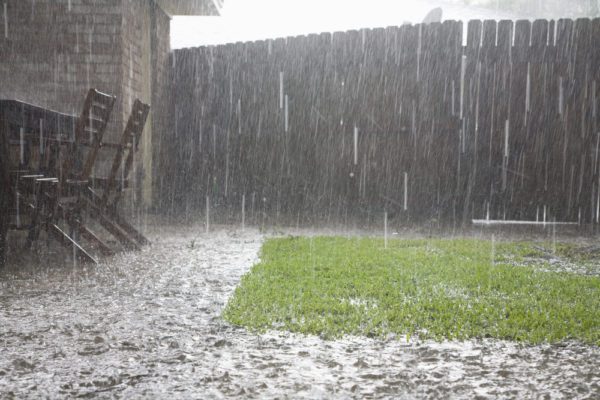
Expansive soil – Soil that contains a lot of clay is what experts call expansive soil. When expansive soil absorbs water, it swells and pushes against your basement walls, causing them to move inward. Then, once that soil dries, the dirt will contract and allow your wall to move back outward. This back-and-forth movement can cause your walls to bow, lean, sheer, or crack. Once the structural integrity of your basement wall is compromised, water can then use any openings to enter your home.
Frost-heaving – When soil freezes, two things can occur.
- One, the volume and weight of the soil can increase, exerting pressure against your basement walls, causing them to bow, lean, sheer, or crack.
- Two, the soil can lift up as it freezes. Then, when the soil dries, it settles back down. This up-and-down movement places pressure on your walls and can cause them to bow, lean, sheer, or crack. All of which can allow water to leak into your basement.
Before You Start Sealing Leaks In Your Basement
If water is leaking through cracks in your basement walls, you first are going to want to find out why the cracks are forming. If your walls are bowing, leaning, or sheering, experts will recommend fixing those problems before you start sealing any leaks.
Read more: Everything You Need To Know About Basement Foundation Repair.
How To Seal Any Leaks In Your Basement
The best solution for sealing leaks in your basement is by filling any cracks or honeycombed concrete with a 2-part epoxy injection. First, a surface patch is formed using an epoxy bonding solution. Then, the leak is injected with the 2-part epoxy, which waterproofs and reinforces your basement wall.
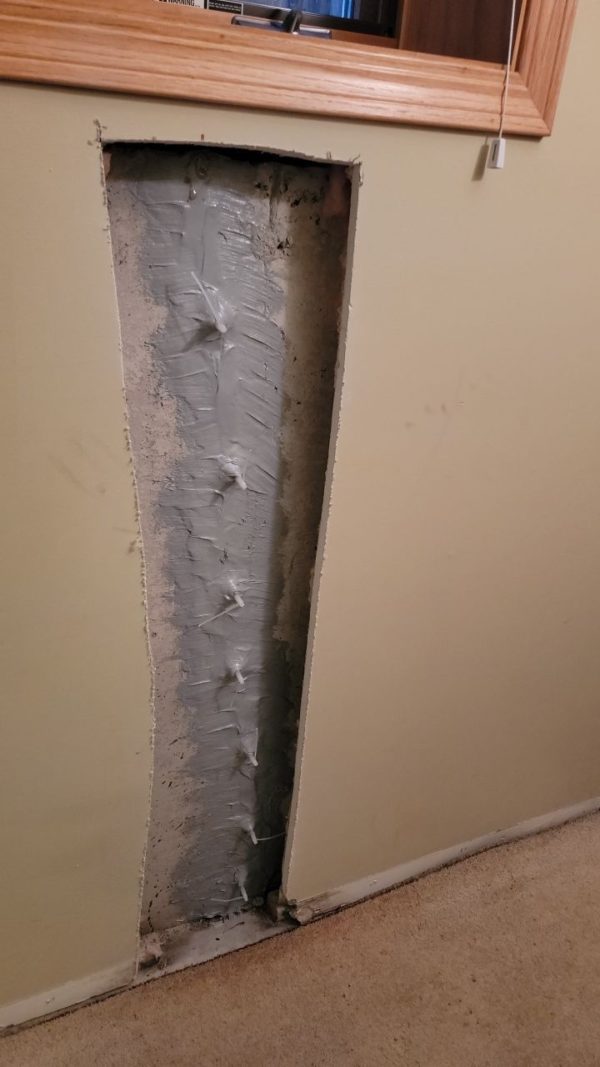
How To Stop Water From Leaking Into Your Basement
Here are a few ways to prevent water from leaking in your basement after heavy rain.
- Add a vapor barrier to your basement – A vapor barrier is a 10 to 20-mil thick sheet that is installed along your basement walls. Vapor barriers are great because they keep moisture from seeping into your basement and channel any collected water to a drain tile system, where it’s then carried away.
- Add a drain tile system – There are two forms of drain tile systems: interior and exterior. An interior drain tile system sits and collects water underneath your basement floor. An exterior drain tile system sits and collects water outside your basement walls. Both of these drain tile systems collect any water that’s building up and carry it to a sump pit.
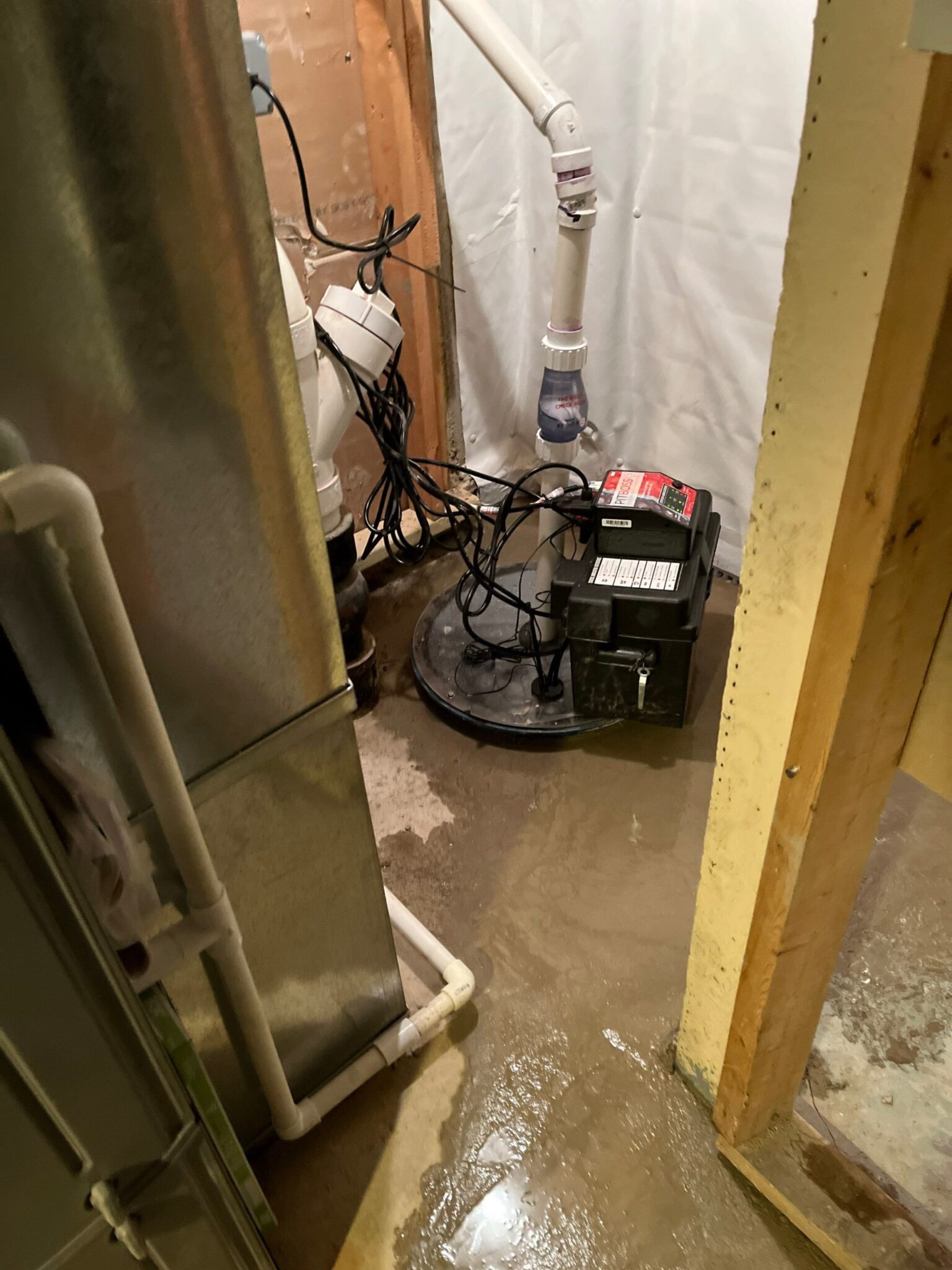 Add a sump pump to your basement floor – A sump pump is a vital part of every basement drainage system. When water travels from your drain tile to the sump pit, the sump pump will activate once water reaches a certain level. Then, the sump pump will eject all the water out of your home using a discharge line.
Add a sump pump to your basement floor – A sump pump is a vital part of every basement drainage system. When water travels from your drain tile to the sump pit, the sump pump will activate once water reaches a certain level. Then, the sump pump will eject all the water out of your home using a discharge line.- Add a French drain to your yard – A French drain is very useful if your yard is prone to pooling water. A French drain is made up of a perforated pipe and is placed just below the surface of your yard. These drains then carry any collected water to the lowest part of your yard, a drainage ditch, street gutters, or a dry well (an underground structure that disposes of excess water).
- Add extensions to your gutter downspouts – If your gutters are allowing water to pour too close to your basement walls, your soil can start accumulating moisture. Downspout extensions help carry that water further away from your home and basement.
- Improve the grading of your property – The soil around your foundation should slope at least 6 inches within 10 feet away from your home. Otherwise, water will drain towards your foundation and exert pressure against your basement walls. This solution involves a lot of landscaping and if you are not comfortable doing it yourself, call a professional.
Read more: How Foundation Drainage Keeps Your Home Dry.
Who Do You Call Now?
If water is leaking into your basement after heavy rain, call The Real Seal! We’ll get you started with an in-depth inspection, free repair estimate, and a list of our finest solutions. We also provide foundation repair, crawl space repair and waterproofing, concrete leveling, and more.
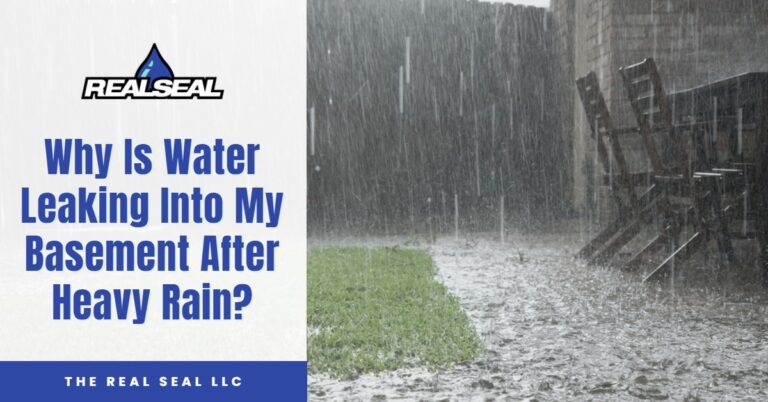
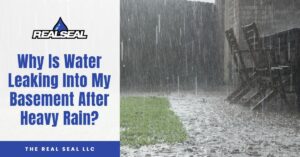
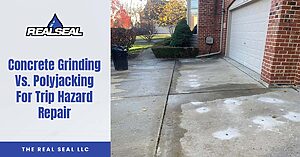
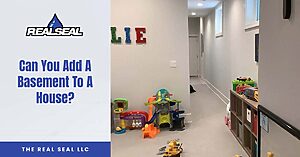
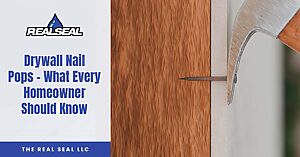
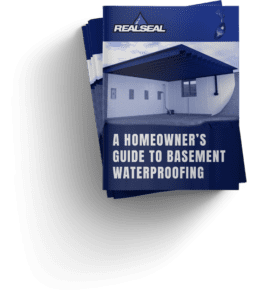

10 Responses
Hello, i would like to get a free estimate. I believe my underground basement has a small leak in it. I’m not sure if it due to drainage or anything else.
Hi Angela! We would be happy to help. Are you in the Chicagoland area? Call our office @ 847-756-7987 and we’ll set you up! If you live outside of Chicagoland, we may be able to recommend a company as well.
Do you find the solution to the problem and do free estimate?
Hi Thelma! Yes, we provide free estimates and we’re very good at finding the issue and tailoring a solution to it.
My name is Tanya Buydos and our basement is leaking water in one corner…both exterior walls. We have a sump pump, but the basement is finished so I don’t know where the water Isco ing from so I don’t know what to do about it. I need someone who knows this stuff to look at it.
Hi Tanya! We would love to help. Can you reach out to our office @ 847-756-7987? It is likely you will need to take down drywall in the affected areas so the foundation wall can be inspected and the leak found.
Water leaks out of a corner wall in my basement after a heavy rain.
Hi James!
We are reaching out with your email to see if you’re in our service area and we can help.
Hi my name is mun
my basement lot leaking water now my tenant all day cleaning water lm feel bed
we were fixed but same problem
please
how l do that
Hi Mun!
The best thing to do is get a qualified contractor to come diagnose the issue and provide a repair solution. There is no “one-size-fits-all” solution for basement waterproofing, and often times there are a few issues that need to be addressed.